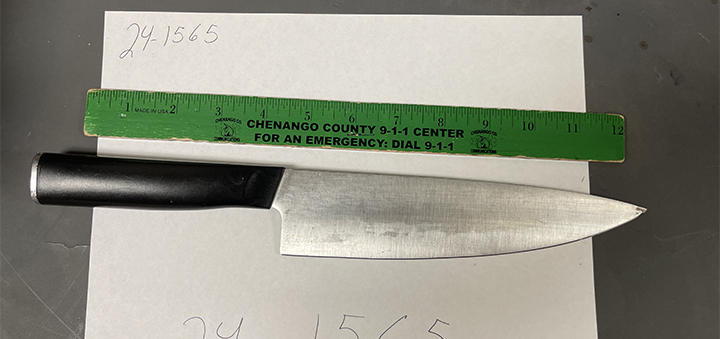The Do’s And Don’ts Of Charitable Giving
Published:
December 1st, 2020
 Senator James L. Seward
Senator James L. Seward
By Senator James L. Seward
Americans are very compassionate – donating well over $400 billion to charities annually. When someone is in need, it is in our nature to reach out and help. Thoughtful contributors deserve to know that their donations go toward valid charitable work. It is also essential we stop anyone attempting to deceive the public under the guise of charity.
New York State law requires that organizations that solicit money directly from the public register with the Department of Law. The law secures your right to know how much money these organizations raise and how your contributions are used, including salaries and administrative expenses.
Many non-profit groups are struggling to keep up with new community and financial demands due to COVID-19 and charity giving is more essential than ever. During the holiday season, the appeals for charitable gifts will peak. With that in mind, I offer a few helpful “do’s and don’ts” that you should keep in mind before contributing.
Do’s of charitable giving:
Do ask to see identification for both the solicitor and the organization, including the organization’s registration number;
Do ask how much of your contribution goes toward fundraising and administrative expenses, including the salaries of the organization’s directors and employees;
Do ask for written literature;
Do ask whether your contribution may be tax deductible;
Do be suspicious of anyone who cannot respond to your questions satisfactorily.
Don’ts of charitable giving:
Don’t be afraid to ask questions;
Don’t give to an organization you know nothing about;
Don’t let yourself be pressured into making a donation;
Don’t feel obligated to make a contribution on the spot – you can always mail a contribution after receiving more information;
Don’t give because the solicitor gives you a “sob story.” This approach is quite often a sign of phony and unscrupulous operators;
Don’t be fooled by an impressive name or one that closely resembles the name of a respected or legitimate concern.
Most organizations in New York State that engage in charitable activities and/or solicit charitable contributions are required to register with the Attorney General’s Charities Bureau. Under New York State law, charity is defined very broadly, and includes purposes such as cultural programs, education, poverty relief, promotion of health and research to cure disease, and other purposes to benefit the community.
Although most charitable organizations are required to register, some are exempt, including: religious organizations, parent-teacher associations, membership organizations that do not solicit contributions from the public, certain educational institutions, and government agencies. Depending on the nature of their activities and whether they solicit contributions from the public, other organizations may also be exempt from registration.
The New York State Attorney General’s office has additional information that can be helpful for givers and charities alike. The website, www.charitiesnys.com, contains financial reports of charities active in New York, guidance for those who manage charities, tips for those considering donating to charity, and links to other resources. The website also includes an on-line complaint form. All complaints received by the Charities Bureau are reviewed thoroughly to determine whether any action by the attorney general is warranted.
The State Attorney General also publishes an annual “Pennies for Charity” report, which analyzes fundraising trends in New York. The report includes up to date information on fundraising efforts at New York charities and has some great pointers regarding online giving.
Perhaps the best advice is to give to a local non-profit group or charity. There are many organizations staffed by volunteers that live and work right here in our community. These groups make a real difference in the lives of our friends and neighbors, and they are part of the reason why our area is so special.
Finally, if you want to donate to a cause, but do not have the financial means to do so, consider giving your time – it is just as valuable to non-profits in need.
Comments
(1).jpg)






